I really enjoyed this book, which is a sort of braiding of three plotlines, one a fable, one a farce, one a diary, all of them on the topic of finding one’s identity as an Asian person in a predominantly white society.
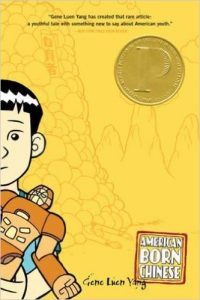
The only thing I will say by way of critique (and maybe this is sort of like someone at a restaurant critiquing small portions rather than quality, BUT…) is that the diary portions were so clever and subtle that I found myself rushing through the other segments. The other parts were there for a reason, and certainly were important to the building of the story and the ultimate coalescing of the different narrative melodies, but… I feel like I could have easily enjoyed three or four hundred pages of the more realistic portion of the tale.

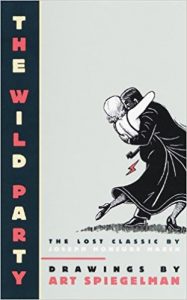
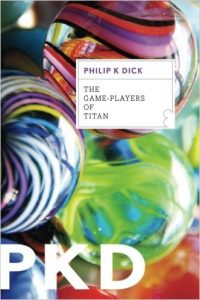 there are strands of pure beauty here and there. But, somehow nothing seems to come together in this book. It feels very rushed and slipshod. The universe of the book really doesn’t make a lot of sense. And, just in terms of showmanship, the game that the Game-Players of Titan play appears to be some variant on The Game of Life. I mean, if you’re going to have an alien game be a major plot element, at least make it cool, no?
there are strands of pure beauty here and there. But, somehow nothing seems to come together in this book. It feels very rushed and slipshod. The universe of the book really doesn’t make a lot of sense. And, just in terms of showmanship, the game that the Game-Players of Titan play appears to be some variant on The Game of Life. I mean, if you’re going to have an alien game be a major plot element, at least make it cool, no?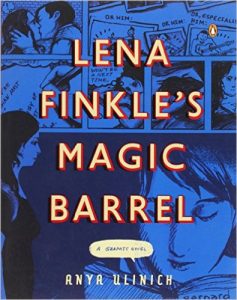 in the City should be. The characters are beautifully crafted and the story is wonderful. Ulinich also does an excellent job of using the vehicle of comics to create the story.
in the City should be. The characters are beautifully crafted and the story is wonderful. Ulinich also does an excellent job of using the vehicle of comics to create the story.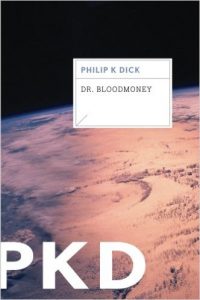 meandering and strange, and yet very beautiful. Like all good Dick novels, I can’t really explain it by trying to describe it. It’s a post-apocalypse book, but it’s really not like any other such book. It’s more of a poem in a certain sense. Anyway, go read it.
meandering and strange, and yet very beautiful. Like all good Dick novels, I can’t really explain it by trying to describe it. It’s a post-apocalypse book, but it’s really not like any other such book. It’s more of a poem in a certain sense. Anyway, go read it.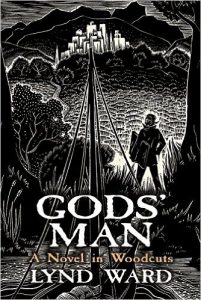 of what would later become the Graphic Novel. It’s a beautiful, if simple, story told in a series of gorgeous woodcuts with an incredible 1920s art deco feel to them. I went through it somewhat quickly, but I find the images stay with me. Definitely worth a look.
of what would later become the Graphic Novel. It’s a beautiful, if simple, story told in a series of gorgeous woodcuts with an incredible 1920s art deco feel to them. I went through it somewhat quickly, but I find the images stay with me. Definitely worth a look.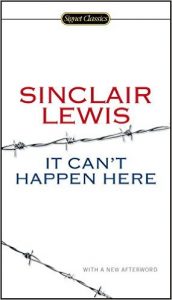 has to do with the idea of a sort of populist fascist coming to power in America). I’m a bit torn on it.
has to do with the idea of a sort of populist fascist coming to power in America). I’m a bit torn on it.